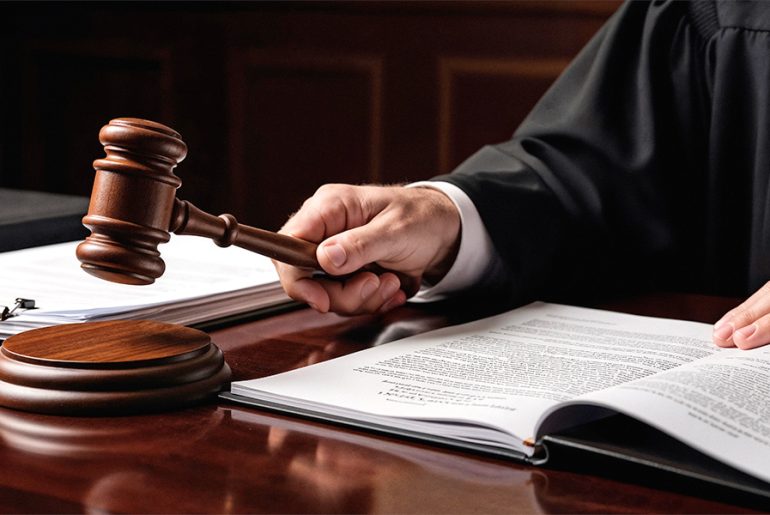The OtterSec lawsuit has become a significant case that highlights critical issues within the blockchain security and auditing industry. This legal dispute involves multiple complex claims against the cryptocurrency auditing firm, raising important questions about professional standards, corporate governance, and accountability in the rapidly evolving Web3 ecosystem.
Background of OtterSec and the Legal Disputes
OtterSec LLC established itself as a prominent blockchain security auditing company, specializing in smart contract audits and vulnerability assessments for cryptocurrency projects. The company gained recognition for providing security services to various blockchain protocols and decentralized finance (DeFi) projects.
The legal troubles began with a lawsuit filed by Li Fen Yao, administrator of the estate of her late husband Sam Mingsan Chen, stemming from a dispute involving the dissolved cybersecurity company. However, the legal challenges extend beyond this initial case, with multiple parties involved in various claims and counterclaims.
Primary Allegations and Claims
Audit Negligence and Professional Misconduct
The lawsuit centers on claims of fraud, breach of contract, and negligence, with one client alleging that OtterSec provided a flawed audit that missed key bugs, leading to significant losses when hackers exploited these vulnerabilities. The plaintiff says OtterSec didn’t find a big weakness during an audit, and that weakness was later used in a costly attack worth millions.
These allegations raise serious concerns about the quality and reliability of security audits provided by the firm, questioning whether OtterSec met the professional standards expected in the blockchain security industry.
Internal Corporate Disputes
On November 25, 2024, Robert Chen and OtterSec LLC filed an amended complaint in the US District Court for the District of Wyoming against David Chen, alleging severe misconduct and theft related to their cryptocurrency trading business. OtterSec claims damages for conversion and breach of fiduciary duty, with allegations that David Chen’s misconduct extended to accessing and stealing funds.
Court Proceedings and Legal Developments
Recent Court Rulings
The court partly approved the defendants’ request, rejecting the claim under the Lanham Act, the fiduciary duty claims connected to OtterSec, and the misappropriation and conversion allegations. The court explained that these claims were based on harm to the company, not to individual people involved.
This partial dismissal indicates that while some claims have been rejected, other aspects of the litigation continue to move forward through the legal system.
Ongoing Legal Proceedings
The case continues to evolve with various motions and legal maneuvers from all parties involved. The complexity of the dispute reflects the multifaceted nature of the allegations and the various stakeholders with competing interests in the dissolved company.
Industry Impact and Implications
Setting Precedents for Blockchain Auditing
The OtterSec lawsuit has wider effects on the blockchain security field. The case highlights the potential legal risks faced by auditing firms and the importance of maintaining rigorous professional standards when conducting security assessments.
Professional Standards and Accountability
The case’s outcomes will likely influence the crypto security landscape, with industry observers noting that the days of casual security certifications in crypto may be coming to an end. This suggests a potential shift toward more stringent professional standards and accountability measures within the industry.
Client Trust and Market Confidence
The lawsuit has raised questions about client trust in blockchain security firms and the reliability of smart contract audits. Projects seeking security assessments may now demand higher standards of due diligence and more comprehensive liability protections.
Potential Outcomes and Future Implications
Settlement Possibilities
The lawsuit might lead to different results, like an agreement between the parties, a decision by the court supporting one side, or other ways to resolve the case. Each possible outcome could have different effects on OtterSec and the tech industry as a whole. For example, if there’s an agreement, it could mean changing how the company does business or paying some money.
Regulatory Considerations
The case may influence how regulators approach oversight of blockchain security firms and could lead to the development of more formal regulatory frameworks for the industry.
Industry-Wide Changes
The resolution of this lawsuit could establish important legal precedents for how blockchain auditing firms conduct business, manage client relationships, and handle internal corporate governance issues.
Lessons for the Blockchain Security Industry
Enhanced Due Diligence
The case underscores the importance of thorough due diligence processes in blockchain security audits. Firms may need to implement more rigorous testing methodologies and quality assurance measures.
Legal Risk Management
Security firms must carefully consider their legal exposure and implement appropriate risk management strategies, including comprehensive insurance coverage and clear contractual terms.
Corporate Governance
The internal disputes highlighted in the OtterSec case emphasize the importance of strong corporate governance structures and clear operational procedures within blockchain companies.
Conclusion
The OtterSec lawsuit represents a watershed moment for the blockchain security industry, highlighting critical issues around professional standards, corporate governance, and legal accountability. As the case continues to develop, how it is resolved will probably influence the future of how blockchain audits are done and set key examples for the industry. Companies and clients in the Web3 space should closely monitor these developments, as they may significantly impact how security audits are conducted and regulated moving forward.
The outcome of this case could ultimately lead to stronger professional standards and greater accountability across the blockchain security sector, potentially benefiting the entire cryptocurrency ecosystem through enhanced trust and reliability.


